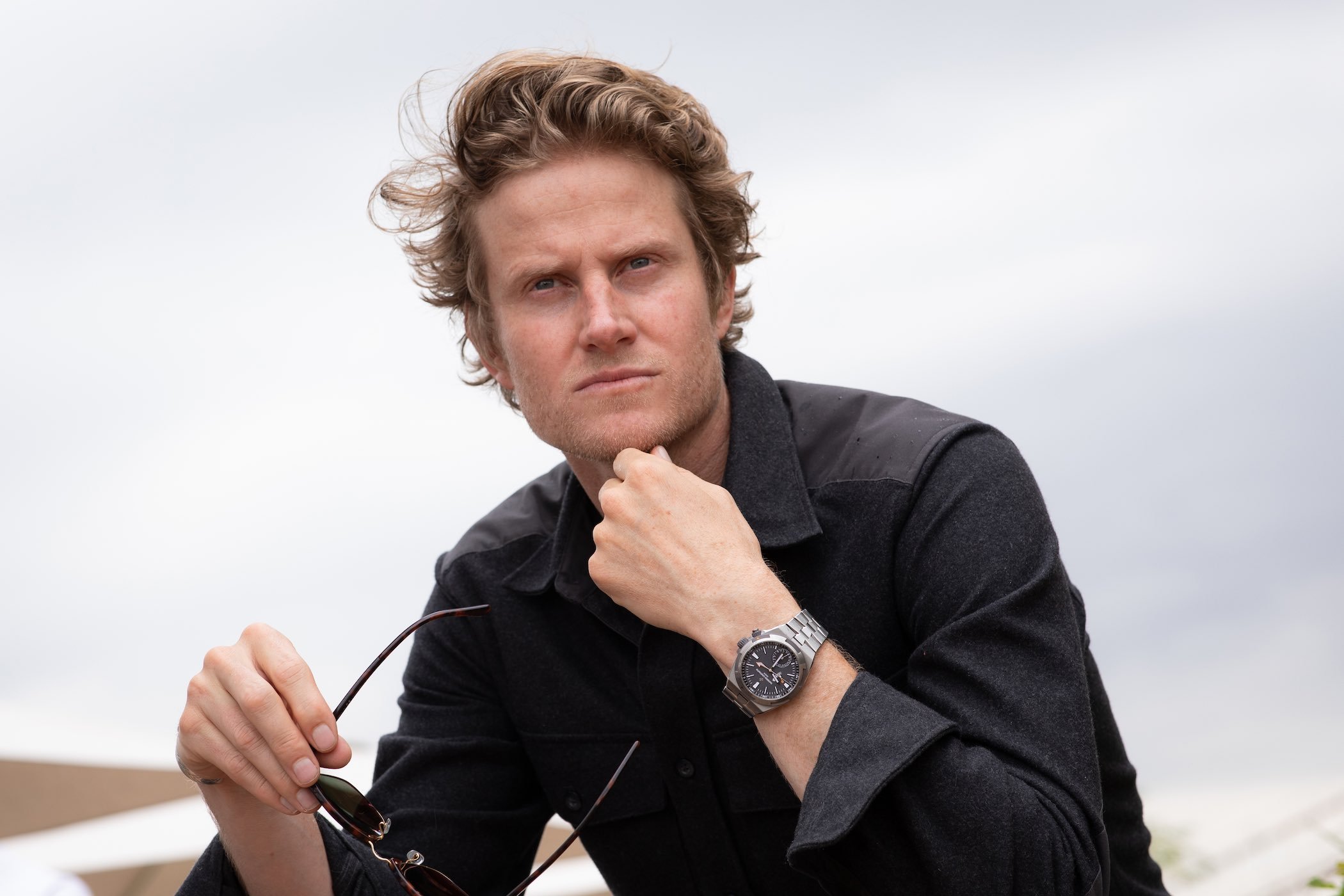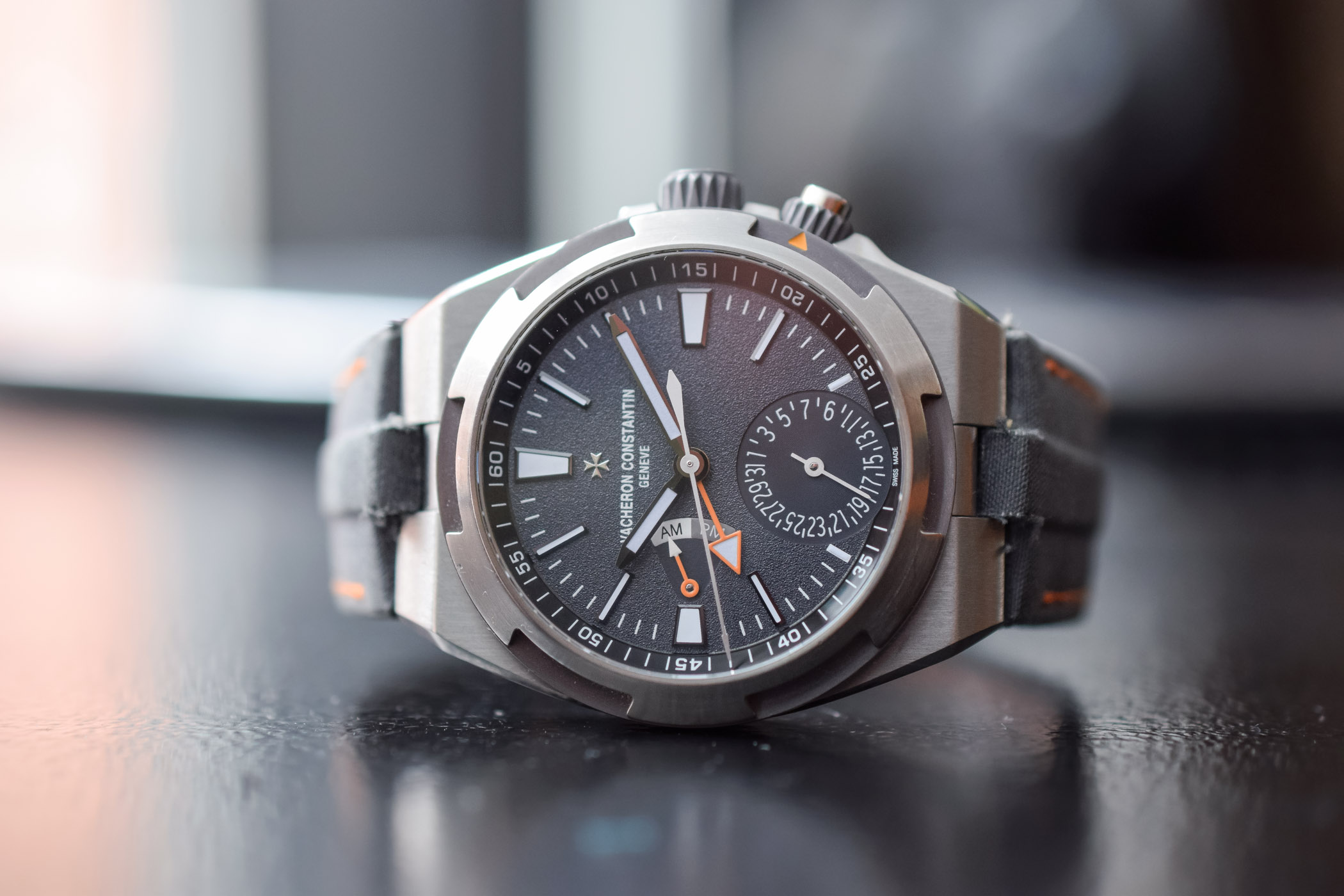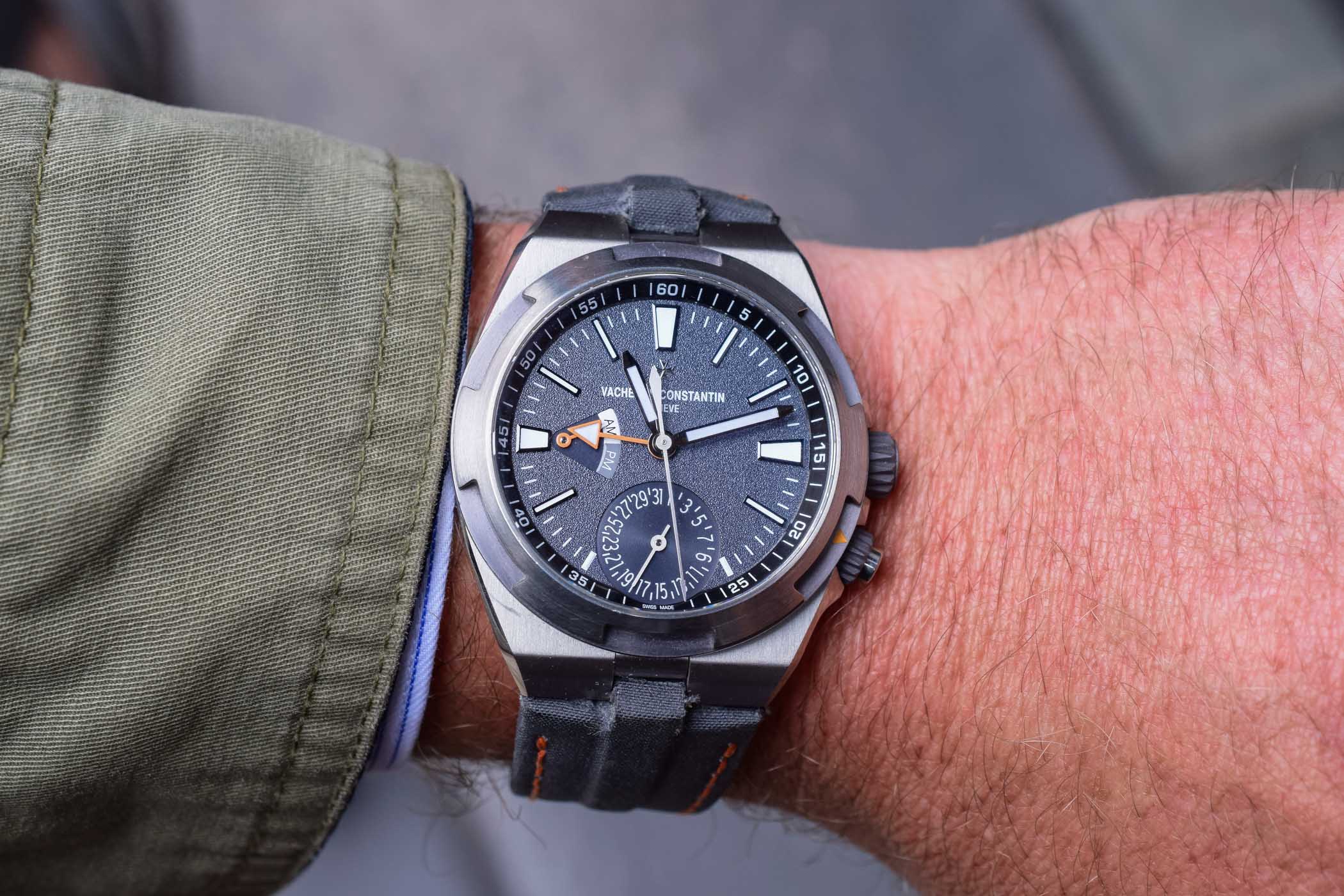Cory Richards, his Attempt to Blaze a New Route up Mount Everest and a Vacheron Constantin Overseas Prototype…
“One of not Many”

Cory Richards is an exceptional individual. Part of Vacheron Constantin’s campaign “One of not Many”, Richards was a brilliant kid, dropped out of school, got into alcohol… and became the first American to summit an 8,000m peak in winter time. This photographer, adventurer and mountaineer has climbed Mount Everest twice. But this year, along with climbing partner Esteban “Topo” Mena, he has attempted to reach the top of the world from a path no one has set foot on before. Although the duo had to turn around, Richards is already planning a second attempt for 2020…
Strapped to Cory Richards’ wrist during this attempt was a Vacheron Constantin Overseas. Not any Overseas, a titanium/tantalum prototype designed specifically for the expedition. Just a few weeks following his return to the USA, on the occasion of a New York press conference and customer event, MONOCHROME had the opportunity to sit down with him.
Xavier Markl, MONOCHROME – Why climbing?
Cory Richards – Describe a color you’ve never seen… you can’t. There are no words to describe it. It’s love, it’s slight masochism, it’s curiosity. But the whole concept goes way beyond any of those words or descriptors. There’s a list of a thousand adjectives that could be applied to what it is or why, and truthfully, even if you added all of those up, it would not describe it. I have to. I have always climbed since I was five. I think it’s also just part of life. When I don’t climb I think I am unhappy.
Why try a new Everest route?
The harder question is: where does the idea come from?… I don’t know. But I know why I tried: it is about the principles we talked about. It is artistry. I see climbing as a creative act. I view it as a spiritual act, it is an act of reverence, of worship. It is almost a performance art, a dance. And creating something new is somehow just like creating a picture or a painting. We want to try something that presses us beyond what we know we can do. It falls outside certainty, it demands curiosity. There is no certainty, and I love that.
What happened during this previously untried climb? At what point did you accept that you had failed and had to abandon?
I knew pretty early on that we were moving too slowly given the conditions. But we didn’t want to give up. We turned around at one point then slept for an hour. We kept climbing the next day. And then we turned around again because we were too tired. The point at which we were certain that we were going down was the very highest point we reached. And it was heartbreaking. It is so easy to distort the past, that I wonder could we have kept going?
We work very hard to not push it to the edge of falling over. We don’t want to die. We go to the mountains to live more fully. Pushing it to a certain point is great. But beyond some point, you are not going to know how close to the edge you are. The higher you get, the harder it is to think, the harder it is to make decisions, the harder it is to move. And that’s when you lose it. That just comes with the experience of climbing.
You’ve always climbed, but how did you get into photography?
On the first expedition I went on, the photos that I brought back seemed to have some impact on me, more than on anybody else. That was an immediate way for me to translate this experience of climbing that seemed to be analogous and allegorical with my experience in life which was one of trouble, defiance and brutality but also one of extreme beauty, elegance, refinement and thoughtfulness.
Moving to watches, what is your first horological/watch memory?
My first watch memory is of my dad, I loved the way the watch fit his wrist, I loved the contrast of the silver against the skin tone. It made me want to be like him because it signified he was grown up and I wanted to be like him. I don’t remember what kind of watch it was. But it was the way it looked, it was the aesthetic laid against his arm that made me so intrigued about it.
What has been your experience wearing your Overseas Prototype?
We designed it with the expedition in mind. We used materials like titanium and tantalum to withstand the rigors of an ascent like this. We also incorporated certain elements of design that I love, minor detailing, colors to really make it come to life. Of course, we wanted to personalize it. Carving, etching Everest on the actual heart of the watch was sort of the finishing touch.
The dual time is very important. The exact time where you are is telling you what is presently happening. There is a certain meditative quality to watches and time. It is always present. It is always now. But dual time is wonderful because it creates this reminder of the entirety of your life outside of that moment. Everything else that exists in a different place. And those people care. And that community cares. That’s important.
A thing that the watch also reminds me of is perfection. It has to be perfect and that’s something that I can’t attain. But it is a reminder to try to be my best self. To have this reminder attached to you is also very powerful. I am not a technically perfect person. You can be technically perfect but that’s just good. To transcend good and become great requires something else. You see that in photography, and you can see that in watches. You can have a technically perfect photograph with the right composition, with the right light and it can be good. Then you can have a photograph that for some reason is so evocative and so emotive. And that is a great photograph. And the same is true for watches. You can have something that looks technically perfect but the difference is when it somehow transcends the good thing and becomes great. That’s what I love with Vacheron Constantin. And that’s beautiful.
How was the connection made with Vacheron Constantin?
Well, they connected with me and I don’t know how they found me. But I am happy they did. That’s alchemy. I love it. It is the right partnership for me.
More details on Cory Richards on his personal website (featuring stunning photos). More details at www.vacheron-constantin.com.











7 responses
“…and became the first American to summit an 8,000m peak”
There’s some qualifier missing there – Jim Whittaker summitted Everest (8848m) in 1963…
Never ever was he the first American to summit a 8000m peak as it says in the intro. Way too young…
@Thomas Dupré and @Andy Burns – Sorry, there was indeed a word missing… He was the first to do it “in winter time”. Now edited
That Overseas is gorgeous… curious to see if the brand will release it.
What a lucky guy…
Nice write up. You had my attention.
Vacheron Constantin are nuts if they don’t add that watch to the collection.